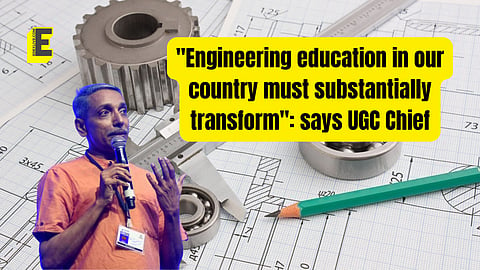

Considering the fast technological developments and the increasing requirement for industries to have a well-trained work-force, engineering education in our country must substantially transform.
By adopting the national credit framework launched by the University Grants Commission (UGC), we need to scale up the number of engineering students who undergo experiential learning through apprenticeships, internships, and real-world engineering projects in collaboration with industry.
At the opposite extreme, engineering education's big challenge is its dependence on outdated curricula and emphasis on rote learning to the exclusion of practical knowledge. Engineering institutions must expand their partnerships with industries to confound this concern. For example, UGC's professor of practice scheme can build and sustain such collaborations.
In addition to the core subject knowledge, there is a greater need for students to acquire soft skills — the ability to work in teams, to be able to communicate effectively and to develop leadership qualities. That is the only way engineering education in our country can purposefully benefit future workplace ecosystem needs.
Engineering education must also emphasise sustainable practices and ethical decision-making as we grapple with extreme poverty, multidimensional poverty, global warming and climate change.
We must acknowledge the challenge of falling enrollments in traditional engineering disciplines. It is wrong to assume that only Computer Science graduates have better prospects. Emerging areas such as healthcare, logistics, telemedicine, medical devices, smart cities, sustainable urban planning, transportation, smart grids and environmental management require experts with muti-disciplinary engineering knowledge.
A multi-disciplinary engineering curriculum, therefore, must involve paying attention to introducing emerging areas such as Artificial Intelligence (Al), Machine Learning (ML), data science and entrepreneurship in traditional engineering disciplines, which is crucial.
For instance, students in civil engineering should be able to pursue dual specialisations by opting for environmental data science. Indian engineering institutions can then make these traditional engineering disciplines more engaging to students.
Engineering colleges must focus on establishing adequate infrastructure, well-equipped labs and resources for effective teaching and learning. By prioritising the capacity building of their teachers, institutions must ensure that they stay up-to-date with the advances in their field.
Lastly, all engineering institutions must partake in the accreditation process to sustain high standards.
The insight to deliver higher-quality engineering education starts by recognising and accepting the current system's shortcomings, no matter how difficult they are to swallow.
